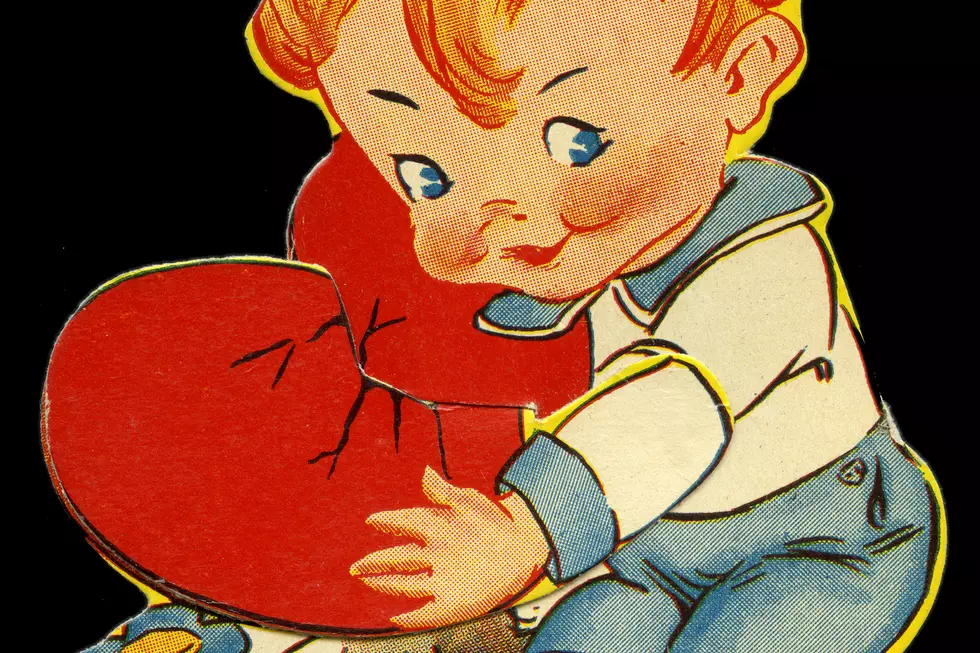
‘Portlandia’ Can’t End Without a Greg Sage Cameo
Fred Armisen and Carrie Brownstein have used their punk and indie cred to grab some seriously cool 'Portlandia' guest stars, among them Aimee Mann, Eddie Vedder, Johnny Marr, St. Vincent, Joanna Newsom and Isaac Brock. Musicians clearly like the idea of lampooning trendy Portland, Ore., and its various types self-righteous bohemians. And because there's no shortage of stuff to mock, the IFC comedy has remained fresh and funny for three full seasons.
The fourth will kick off on Feb. 27, and the list of upcoming guests includes Jeff Tweedy, Jello Biafra and Josh Homme. These are great choices -- you know that Biafra's gonna kill it -- but if Armisen and Brownstein really want to prove their punk bona fides and feature a guy who knows better than anyone how the city and its storied music scene have changed since the dawn of punk, they need to get Greg Sage.
It won't be easy. When Sage founded the Wipers in 1977, he wasn't looking for attention. In fact, he had no designs on playing live. The singer and guitarist simply wanted to make records -- as in literally carve grooves in wax with the lathe he'd acquired from his father -- and even as the group achieved notoriety, touring the U.S. and Europe in support of the six albums they released between 1980 and '88, Sage remained a cult figure at best.
The closest that came to changing was in 1993, when super-fan Kurt Cobain commissioned the '14 Songs for Greg Sage and the Wipers' tribute album. As he'd done with the Melvins and the Vaselines, Kurt used his fame to endorse a band that had meant a something to him growing up, and while Wipers records like 'Youth of America' didn't exactly start flying off shelves, young Nirvana fans passionate enough about music to track down copies discovered yet another plaintive Pacific Northwesterner great at channeling anger and isolation into gripping rock songs. Like Coban, Sage can seem like a friend, even when the pain he sings about is very much his own.
Musically, Sage's unique vision made the Wipers a punk band in name only. There's butt-simple Ramones chug on their debut, 'Is This Real?,' but there's also pointy post-punk cuts like 'XYZ.' Moving into the '80s, Sage copped the rigid factory pulse and demon-billy howls of Suicide and fashioned elastic guitar sounds not unlike the ones Vini Reilly of Durutti Column was inventing over in Manchester, England. Elsewhere in their discography, the Wipers sound like Gun Club and even the Cocteau Twins.
Sage has said he constantly flipped the script not simply to be different, but because he believed being originality was the key to making great records.
All of this is to say he's a Portland legend, even though he now lives in Phoenix, where he runs Zono Records, a reissue label whose catalog comprises Wipers releases and previously out-of-print records by obscure Portland bands. Sage stuck around Portland long enough to see the scene get druggy in the late '80s and then fall victim to grunge-era hype in the '90s, as he said in an interview, and he probably knows all about the artisanal pickle makers, dumpster-diving freegans and entitled cyclists that have inspired Armisen and Brownstein's show.
Sage generally avoids the spotlight, but this wouldn't be Barbara Walters asking for a sit-down. It's Sleater-Kinney's guitarist and a dude who sort of reunited the Clash -- perhaps he'd make an exception and step in front of the camera. The question then becomes how to use him. It's a tough call, since there are no interviews up on YouTube -- just footage of him in his headband, throwing down onstage:
Luckily, there are lots of ways Armisen and Brownstein could go with this. Women & Women First, a.k.a. the Feminist Bookstore, is certainly one option. In one of the show's best recurring bits, the stars play a pair of crunchy cranks whose definition of feminism involves not only hating men, but also hating most other women. Woe is the customer who wanders in and says the wrong thing -- i.e. anything -- and Sage, by virtue of being a man, could get into all sorts of trouble. He might even get more gruff than poor Aubrey Plaza:
Sage would have fit nicely into the Season 3 'Lucky Seven Punk House' sketch, where Brownstein plays a real estate agent trying to sell an elderly couple on a former crash-pad for crusts. More so than most 'Portlandia' sketches, this one has a beginning, middle and end, but that doesn't mean there can't be a sequel. Maybe the punks come back to reclaim their territory, and Sage starts spouting lines from 'Youth of America,' seemingly oblivious to the fact he's in his 50s.
Or it might be fun to revisit the hopeless community-action panel in 'Renaming NE 15th Avenue.' Maybe there's another thoroughfare in need of rechristening, and maybe Armisen's oldster punk character from 'Lucky Seven' shows up to suggest Greg Sage Boulevard. The running joke could either be that no one knows who the dude is, or that the local politicians feel late-era Wipers albums like 'The Herd' and 'Power in One' have sullied the group's legacy enough to disqualify Sage from getting his own street. It's at that point the mayor, played by Kyle MacLachlan, steps in to save the day, perhaps rocking one of Sage's headbands.
More From Diffuser.fm









